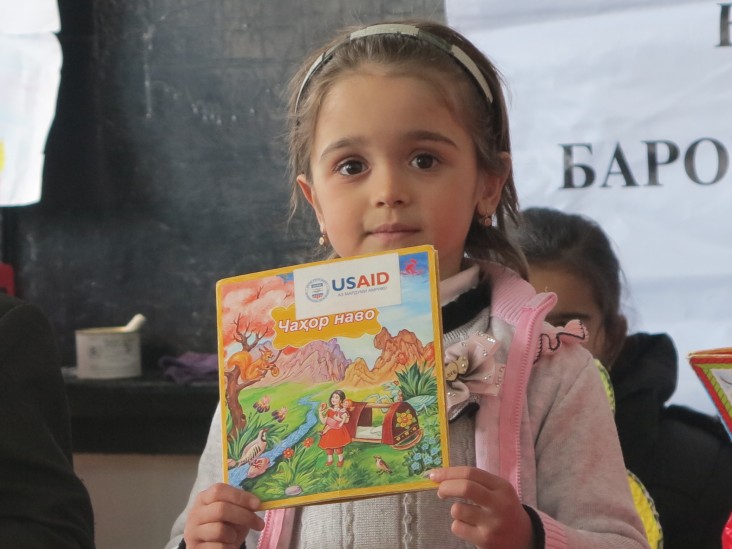Speeches Shim

USAID literacy program support the Government of Tajikistan to reform the primary education system as outlined in the USAID Global Education Strategy and the National Education Development Strategy (2012-2020).
USAID
Tajikistan’s Soviet-era education system suffered from declining budgets and reorganizations that occurred after the country gained independence in 1991, as well as lingering damage from the country’s civil war that lasted from 1992 to 1997. As the Ministry of Education's national strategy recognizes, the level of education of older generations in Tajikistan is higher than that of its youth – an uncommon milestone along the traditional road to economic development. This trend is a result of a teacher training system acknowledged as inefficient; an ongoing transition to local language instruction; and a culture of literacy that is declining, especially in rural areas with high poverty rates.
In response, USAID works closely with the Ministry of Education and international partners to improve students’ reading abilities by improving educators' teaching skills, involving communities, utilizing public private partnerships, and increasing the development and production of age-appropriate reading materials.
USAID extends its support to the Government of Tajikistan to strengthen the education reform process by reaching 75 percent of primary grade teachers with targeted in-service training. Teachers learn to create an engaging classroom environment that helps students develop a strong educational foundation and graduate from “learning to read” to “reading to learn” as they progress from grades one to four.
- USAID conducted a number of training workshops for authors, illustrators and designers, who developed over 100 manuscripts on curriculum topics, standards, and language of instruction for each primary grade and reading level.
- Revised and updated teacher training packages for both Tajik and Russian languages (11 teacher training modules) and worked closely with the Ministry of Education to initiate in-service activities for 240 targeted schools.
- Revised Early Grade Reading Assessment (EGRA) tools for grades two and four and piloted the updated tools in primary schools.
- Established an efficient partnership with the Ministry of Education and its affiliates through three working groups that will support reading material development, teacher training, and assessments and innovations. Tajikistan: Changing the Way Children Learn


Comment
Make a general inquiry or suggest an improvement.